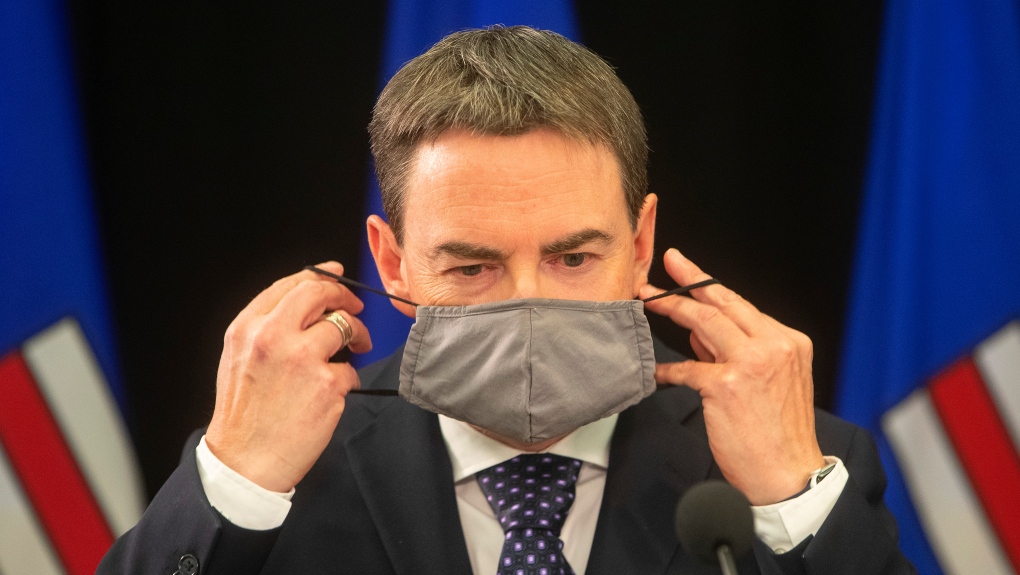Alberta announces incentives to lure doctors to rural communities
 File photo. (CTV)
File photo. (CTV)
Starting Tuesday, the province is accepting applications for doctors willing to work in rural communities, and Monday they announced funding incentives to encourage them.
The Rural Education Supplement and Integrated Doctor Experiment (RESIDE) is providing $20 million in funding for 20 doctors over the next three years.
In return, doctors will practice in 15 communities already identified as being in need, with another five communities to be named in coming years.
Physicians who set up a shingle in those communities of need will be eligible for $60,000 in undergraduate tuition fee reimbursement, along with bonuses ranging from $20,000 to $40,000, depending on the degree of remoteness of a particular community.
To be eligible, physicians must commit to practice in a community for three years.
"RESIDE will be key in attracting new family physicians to bring Albertans in rural communities the health care they deserve," said Health Minister Jason Copping, in a release. "By addressing rural physician recruitment and retention, this $6-million program is another part of our $90-million commitment this year to ensure Albertans have equitable access to physicians no matter where they live."
 New Alberta Health Minister Jason Copping takes his mask off to give a COVID-19 update in Edmonton, Tuesday, Sept. 21, 2021. THE CANADIAN PRESS/Jason Franson
New Alberta Health Minister Jason Copping takes his mask off to give a COVID-19 update in Edmonton, Tuesday, Sept. 21, 2021. THE CANADIAN PRESS/Jason Franson
The program, which will launch in the fall, is open to all family medicine resident physicians completing residency training who have an interest in practising in rural and remote parts of Alberta.
"People of rural Alberta deserve access to high-quality, sustained, dependable, comprehensive health care in their hometowns," said Payden Spowart and Katrina Taylor, student co-chairs, Family Medicine and Rural Medicine Interest Group, University of Calgary Cumming School of Medicine.
"We are excited to be a part of encouraging medical students to explore the many wonderful opportunities that are available within rural medicine in Alberta. We hope this program will help bolster an interest in, and commitment to, rural family practice within the student body and help graduating physicians connect and settle within rural Alberta."
NDP RESPONDS
NDP Health Critic David Shepherd issued a statement Monday, saying the new program was an acknowledgement that the last incentive program launched by the UCP in 2020 was a dud.
"After two years of attacking and undermining Alberta doctors in the midst of a pandemic, this latest UCP scheme to undo some of the terrible damage they have caused to rural health care falls woefully short," Shepherd said.
“Incentive programs are not a new idea but every doctor will have to weigh these dollars against the knowledge that the UCP maintains legislation that allows them to rip up any doctor’s contract on a whim."
CTVNews.ca Top Stories

PM Trudeau 'surprised' provinces unanimous on accelerated defence spending: Ford
Ontario Premier Doug Ford says his fellow provincial leaders are united in pushing for Canada to meet its NATO defence spending targets ahead of schedule, and that Prime Minister Justin Trudeau was "surprised" to hear it.
Immigrants take to the streets to protest against the freezing of immigration programmes
In response to the freeze on immigration programmes announced by Ottawa, an organization that defends the rights of immigrants is organising a demonstration in front of the Montreal office of the Quebec Ministry of Immigration, Francisation and Integration early on Saturday afternoon.
Heavy snow and numbing temperatures keep parts of the U.S. in a deep freeze
Heavy snowfall and numbing temperatures kept parts of the U.S. in a deep freeze Sunday as the Thanksgiving holiday weekend draws to a close.
One man dead after shooting in Kitchener tiny home community
One man is dead after an afternoon shooting at 49 Ardelt Ave. in Kitchener.
'Disappointing': Toronto speed camera cut down less than 24 hours after being reinstalled
A Toronto speed camera notorious for issuing tens of thousands of tickets to drivers has been cut down again less than 24 hours after it was reinstalled.
A Japanese artist finds solace and global fans with intricate leaf-cutting
A frog holding a taro-leaf umbrella. An Ukiyo-e style Mount Fuji. Giant waves. Japanese artist Lito carves these delicate designs on fallen leaves.
Shopping on Shein and Temu for holiday gifts? You're not the only one.
Welcome to the new online world of impulse buying, a place of guilty pleasures where the selection is vast, every day is Cyber Monday, and an instant dopamine hit that will have faded by the time your package arrives is always just a click away.
Beef prices reach record highs in Canada
The cost of beef continues to rise, reaching record highs on grocery store shelves ahead of the busiest time for many grocers and butchers before the holiday season.
A man hid 5 treasure chests worth more than US$2 million across the United States. Here’s how to find them
Inside the chests, searchers can look forward to hopefully locating items such as rare Pokémon cards, shipwreck bounty, sports memorabilia, gold and precious medals.































